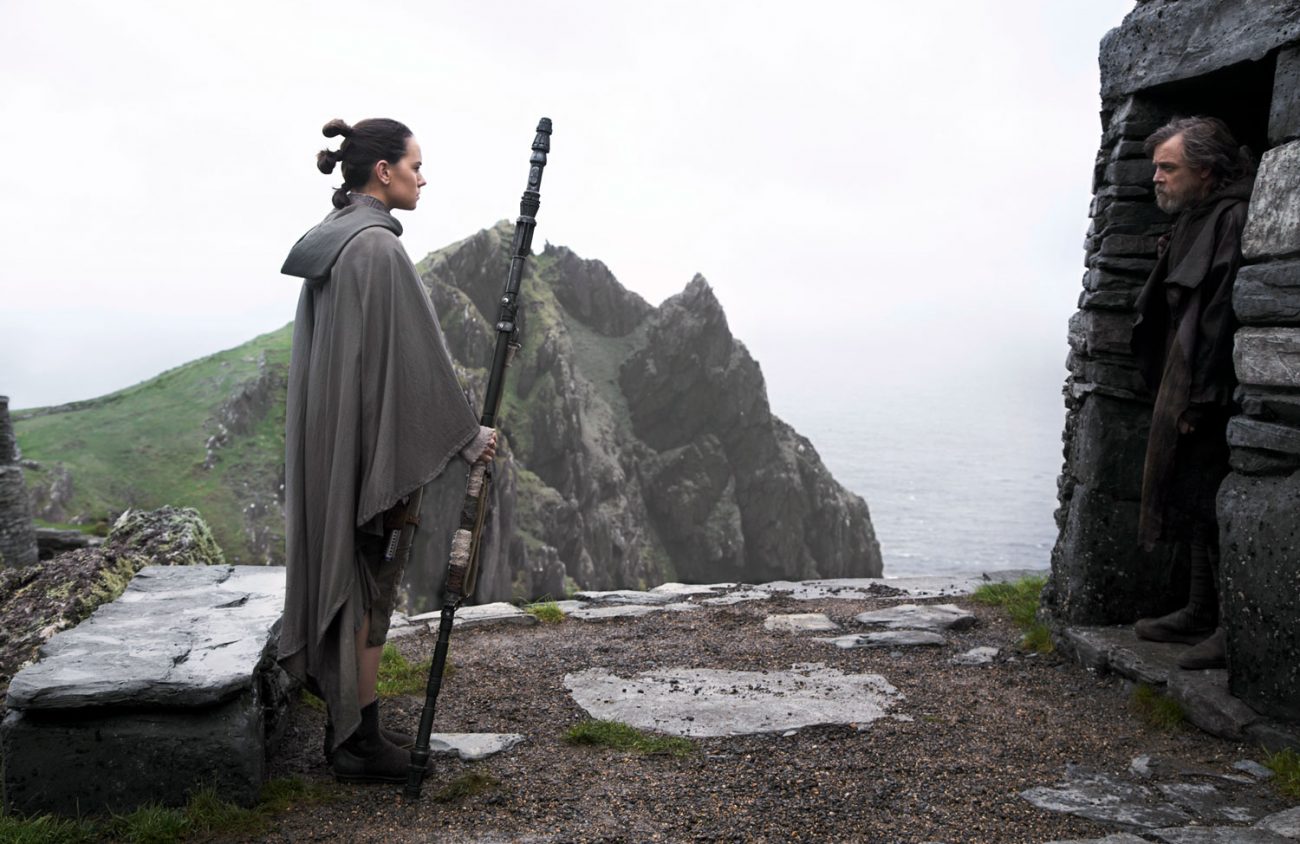Within hours of The Last Jedi’s release, a lot of internet discourse about the film turned hostile. If you loved the movie, you were a fake fan who you didn’t understand Star Wars. If you disliked the movie, you weren’t smart enough to get it, or you dared to have expectations and got upset that they weren’t always met.
The fact that online discussions get ugly is hardly new, but this was especially crushing given that one of The Last Jedi’s themes is the folly of full-throatedly insisting you’re right all the time. Sometimes you’re right, but sometimes you’re wrong, and it’s sheer hubris to insist otherwise. Failure, as one unexpected character tells another, is an incredible teacher.
Writer-director Rian Johnson’s Star Wars debut is a little of everything. It’s long and cluttered and sometimes feels like two films mashed together. It’s also emotionally resonant, a beautiful vision of a more diverse galaxy — and a film that improves on second viewing, when you’re unburdened from any hopes or fears or expectations and can just watch the pieces slot together or, in some cases, jar and bruise.
Johnson’s story expands on a notion The Force Awakens emphasized: that the heroes of these stories can come from anywhere, including the belly of a Star Destroyer. But he takes it a step further, asking us to dispose of (or at least reconsider) the notion of heroes, and heroics, altogether.
Luke Skywalker is back — a surly, resistant Luke, who tells Rey (Daisy Ridley) to go away. (This is some of Mark Hamill’s best work; his expressions and body language often say more than the dialogue.) General Organa (the late Carrie Fisher) quietly demonstrates leadership to the young punks. Vice Admiral Holdo (Laura Dern) makes choices so contrary to the supposed behavior of heroes that hotheaded Poe (Oscar Isaac) can’t understand them.
The actions that we’ve come to understand as heroic are called into question; sometimes a grand sacrifice or risky plan works, and sometimes running is a better idea. What are the actions of heroes? Do we value them too highly? As Leia’s Resistance shrinks, battered by the greater might of the First Order, that question grows in the background: Why do we fight? What are we saving?
The answer, more even than in Rogue One (despite its repeated line about what rebellions are built on), is hope. These characters act on hope — not the sort of tragic hope that led Rey to insist her parents would return, but the kind that sent her off-planet to help Finn (John Boyega).
Hope leads Rey to darker places this time, and it brings her back when Kylo Ren (Adam Driver) misunderstands what drives her. When Holdo says they’re the spark, it’s a spark of hope. Much of the Canto Bight sequence feels unnecessary, but Rose (excellent new addition Kelly Marie Tran) and Finn’s actions there pay off in a reminder that the Resistance isn’t just its leads. It’s everyone in the galaxy who has something to fight for.
And so hope spreads. The Last Jedi wants you to think about that: about actions and consequences, responsibilities and failures, what you do and what you say and why. Sometimes the messages are muddled, and not every narrative or thematic choice works.
But on many levels, The Last Jedi is the antithesis of the virulent discourse it generates: a reminder that flaws can give way to strengths, that being willing to be wrong is a strength, and that doing the work, not getting the credit, is what matters.
